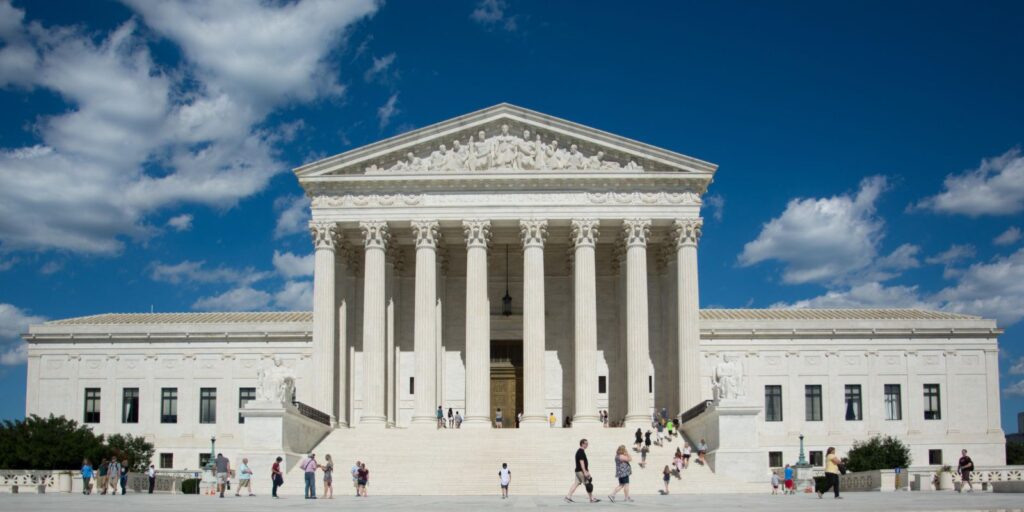Online Casino Gaming: What States Will Legalize In 2025?

Must be 21+ to participate (18+ in KY). Gambling problem? Call 1-800-GAMBLER (CO, IL, IA, KY, KS, LA, MD, MO, NC, NJ, OH, PA, TN, VA). Call 1-800-NEXT-STEP (AZ). Call 1-800-9-WITH-IT (IN). CALL 1-877-770-STOP (LA). Must be present in LA (select parishes). Licensee partner Amelia Belle Casino. Minimum $10 deposit required. Minimum odds -500 or greater. Bonus Bets wager excluded from returns. New customers only. T&Cs, time limits and exclusions apply.
Several states are considering or are expected to consider measures to legalize online casinos in 2025. Multiple legislative initiatives to legalize iGaming fell short in 2024.
Bills that would legalize online casino play remain viable in New York, Maryland, Massachusetts, Illinois, Hawaii, and New Hampshire. Meanwhile, Virginia, Indiana, and Wyoming have already pushed their efforts back until at least 2026.
iGaming play (or online casino play) is legal in 7 states in the U.S. They are Connecticut, Delaware, Michigan, New Jersey, and Pennsylvania. Rhode Island, and West Virginia.
Each of those states also has legal sports betting.
Pennsylvania reported a record monthly iGaming revenue figure of $223.6 million in December 2024. That was 35.5% over December 2023 and 11.5% ahead of the previous record in November.
States traditionally have legalized online casino measures to increase revenues to often-depleted budgets. Those issues continue to be pressing, especially in states such as New York, Massachusetts, and Illinois, where the added costs of migrants have further strained finances.
And with the sea-change in Washington and the GOP holding the Congress, House, and White House, the probability of any federal bailout to offset these costs are all-but zero.
The path to iGaming began with the Supreme Court’s PASPA decision in 2018 that legalized retail and online sports betting.
And, as is the case with sports betting, each state has different laws, rules, and regulations when it comes to gambling.
Some states regulate sports betting, lottery, and casinos under the same umbrella. Others have different regulatory agencies for each.
Where Is iGaming Headed In 2025?
Seven states have introduced iGaming proposals in their current legislative sessions that are still viable. There are currently 32 states, plus Washington DC, that allow sports betting but not iGaming. And 45 states, plus Washington DC, also have legal lotteries. Still, iGaming carries with it a stigma that is challenging for both legislators, regulators, and the general public to overcome.
There is speculation that the Trump Administration would be encouraging iGaming. Any federal crackdown on illegal/off-shore sites would also help the push for legal iGaming.
Elsewhere, the door is beginning to crack. The proliferation of both online sports betting and online lotteries is beginning to lessen the stigma toward iGaming.
Still, any iGaming legislation faces major challenges.
What States Could Legalize iGaming In 2025?
Here’s a look at some of the states that will or could consider iGaming legislation in 2025. Once states legalize, there will be multiple online casino bonus and signup opportunities available in much the same way there was with sports betting. Here is the rundown with the states listed in alphabetical order.
Hawaii
The state would create a lottery and legalize casino play and poker through twin proposals being considered in both the state House and Senate. The Hawaii Lottery and Gaming Corporation (HLGC) would regulate all gaming in the state. The online casino play would be operated by a single commercial partner. If passed, the regulators would have 180 days to launch.
Two other bills that would allow sports betting have also cleared committees in the House and Senate. The House Committee on Economic Development and Technology passed House Bill 1308. The Senate Economic Development and Tourism Committee approved Senate Bill 1569.
Illinois
A pair of bills that would allow online casino play in Illinois have been filed as the state makes another run at legal iGaming. For the second consecutive session, the same 2 lawmakers filed companion bills in the House and Senate. This year, the proposals raise the tax rate on adjusted gross revenue from 15% to 25%.
Operators would pay a $250,000 licensing fee and be allowed to operate up to 3 separately branded platforms.
The bills are SB 1963, introduced by Senator Cristina Castro, and HB 3080, via Rep. Edgar Gonzalez.
Gov. J.B. Pritzker is looking for revenue to fill what could be a $3 billion budget shortfall. The legislature opened its current session earlier this month. Pritzker has signaled he could support legalized online casino betting when he submits his budget proposal next month.
Pritzker told the Chicago Sun-Times that online casino legislation is “worthy of consideration." A bill to legalize online casino play never made it out of a House committee and died at the end of the last legislative session. The current session runs through the end of 2026.
Indiana
A bill that would legalize online casinos and online lottery through the House Public Policy Committee on a 9-2 vote. But Indiana House Speaker Todd Huston it aside until next year, in part, to its multiple moving parts and a lack of consensus among current stake holders and casino operators HB1432 would have placed Online casinos under the Indiana Gaming Commission. Operators would have paid a $500,000 fee, and each licensee would be eligible for up to three skins.
Indiana legalized sports betting in 2019. A similar effort to legalize iGaming failed in 2023. Now, it's on to 2026.
Under the bill proposed this year, current gaming permit holders, including licensed riverboat owners and *racetrack casinos, would have been permitted to operate online casinos. The games proposed included slots, online roulette, poker, and blackjack. The adjusted revenues would have been taxed at a rate between 22% and 30%. The money raised would have been used to aid local governments, the horse racing industry, and problem gambling programs.
Iowa
Iowa was an early convert to sports betting, legalizing it in 2019. A bill that would have legalized iGaming in 2024 never got out of a House committee in the state legislature. The sponsor of that bill said he would not introduce similar legislation in 2025 but would support any iGaming proposal. Attendance and revenue at the state’s 19 land-based casinos fell for the second straight year in 2024.
Maryland
A bill that would legalize iGaming in Maryland has been proposed by State Delegate Vanessa Atterbeary. She is head of the Ways and Means Committee. House Bill 17 (HB17), would allow only the state’s current retail casino operators to offer iGaming. Gross gaming revenue would be taxed at 15%. A similar effort failed last year. Among the games offered would be online slots, blackjack, roulette, and poker. While this bill would give the retail casinos a monopoly on iGaming, the unions that represent casino workers would likely oppose any bill that doesn’t offer protection or revenue sharing for their members.
The bill had a committee hearing on Monday that lasted 4 hours, during which supporters and opponents spoke. The issue of sweepstakes casinos was also raised during the hearing. The legislation would create licenses for the state’s casinos and sports betting licensees. A similar bill proposed in the Senate met the same level of support and resistance in the House.
Meanwhile, the state’s gaming regulators have begun to attack offshore and illegal sites. Maryland Lottery and Gaming sent Cease & Desist letters to 11 casino operators demanding they prohibit their use to those located in the state.
- BETUS
- BETNOW
- BetAnySports
- Everygame Sportsbook
- Fortune Coins
- Golden Hearts
- McLuck
- REBET
- StakeUS
- SlotsAndCasino
- Zula
Massachusetts
A pair of bills that would legalize online casino play in Massachusetts have been introduced. SD 2240 and HD 4084 were authored by Sen. Paul Feeney and Rep. Daniel Cahill, respectively. Under the proposals, unveiled this week, each of the 3 retail casinos in Massachusetts (MGM Springfield, Encore Boston Harbor, and Plainridge Park Casino) would be allowed to partner with up to 2 online operators.
Four additional untethered licenses would also be available.
Online casino wagering would be permitted on poker, slots, blackjack, roulette, and other card and casino games.
Operators would pay a 20% tax on their adjusted gross gaming revenues. The entry fee into the market would be similar to that for sports betting. Operators would pay $5 million for a 5-year license, then an additional $5 million for each 5-year renewal.
Online casinos would be regulated and managed by the Massachusetts Gaming Commission. That body currently regulates horse racing, sports betting, and casino play in the Commonwealth. The State Treasurer has oversight power of the state lottery.
The Bay State has considered iGaming proposals in the past, but nothing formal has yet to make the floor of the General Court (which is the official name of the state legislature) for a full vote.
The Commonwealth is strapped for cash. Despite Massachusetts sports betting revenues crushing all expectations, and the addition of an online lottery this year, the state continues to seek needed sources of revenue. The state faced a potential $1 billion shortfall this past fiscal year. And Gov. Maura Healey finally signed a $730 million spending bill in October.
New Hampshire
Four members of the state senate introduced a bill that would allow online gaming in the Granite State. SB 168 was referred to the Senate Ways and Means Committee on January 23.
The bill calls for an online wagering division to regulate online casinos through the New Hampshire Lottery. As many as 6 licensee holders would play host to online casino sites in partnership with existing gaming facilities in the state. New Hampshire was the first state with a lottery. DraftKings holds an exclusive monopoly on sportsbetting. There are also several land-based casinos in the state.
Gross online gaming revenue would be taxed at 45%. The money would be divided up between the state general fund (50%), special education (25%) and a reimbursement fund for the disabled and elderly (25%). DraftKings is taxed at 51% on its gross gaming sportsbetting revenue in exchange for its monopoly.
New York
NEW: A bill to legalize iLottery and iGaming is filed in New York by @SenJoeAddabbo. Eligible licensees are casinos, VLTs, tribes and OSB providers. Licensing ban if offered unlicensed games within last 3 yrs. Labor peace agreement required; 30.5% tax rate; $2m/$10m license fee. pic.twitter.com/DYIkI12SHE— Daniel Wallach (@WALLACHLEGAL) January 22, 2025
Senator Joseph Addabbo introduced an iGaming bill on January 21. This bill falls in line with past proposals that would have granted 31 licenses across land-based commercial and tribal casinos, video lottery terminal (VLT) racetracks, nine online sportsbook operators, and three applicants outside the state. Operators pay a 30.5% tax on earnings and pay a $2 million licensing fee ($10 million for independent operators).
Addabbo's effort to pass an iGaming bill failed in 2024. The revenue numbers for sports betting in New York have been stratospheric of late. And the revenue delivered to Albany offers perhaps the best argument for this cash-strapped state to consider – it does not legalize – iGaming in 2025.
New York is unique among potential iGaming states in that it is bordered by 3 states (New Jersey, Connecticut, and Pennsylvania) that already allow the practice.
New York has 27 land-based casinos. Several casinos are operated by Native American tribes. The presence of those tribes could complicate any iGaming legislation due to the different regulatory structure that governs Indian Gaming.
While many of those land-based casinos would participate in any New York online casino opportunity, the unions governing their employees want to make sure their members see either protection or revenue sharing from it.
Wyoming
A bill that would have legalize iGaming under the guidance of the Wyoming Gaming Commission failed to get past a House committee on Monday, shelving it until 2026. House Bill 0162 would have allowed wagering on poker, blackjack “or any other card, slot or gambling game typically offered in a casino.”
Current sportsbooks operating in Wyoming would have been eligible to apply for an iGaming license through “an abbreviated application.” Operators would be charged a $100,000 fee for a 5-year license. The state would grant no fewer than 5 skins under the bill. Operators would pay a tax rate of 16% on their gross gaming revenues. The money would go to local county governments, schools, and programs to treat problem gaming
Wyoming legalized sports betting in 2021.
Bonus Code: BOOKIESBRP1500
Gambling problem? Call 1-800-GAMBLER (Available in the US) Call 877-8-HOPENY or text HOPENY (467369) (NY) Call 1-800-327-5050 (MA), 1-800-NEXT-STEP (AZ), 1-800-BETS-OFF (IA), 1-800-981-0023 (PR) 21+ only. Please Gamble Responsibly. See http://BetMGM.com for Terms. First Bet Offer for new customers only (if applicable). Subject to eligibility requirements. Bonus bets are non-withdrawable. In partnership with Kansas Crossing Casino and Hotel. This promotional offer is not available in DC, Mississippi, New York, Nevada, Ontario, or Puerto Rico.
About the Author

Bill Speros is an award-winning journalist and editor whose career includes stops at USA Today Sports Network / Golfweek, Cox Media, ESPN, Orlando Sentinel and Denver Post.


 Bluefox Casino £1,000 Welcome Bonus Offer February 2026: 100% Online Casino Bonus Up To £1,000 + 100 Free Spins
Bluefox Casino £1,000 Welcome Bonus Offer February 2026: 100% Online Casino Bonus Up To £1,000 + 100 Free Spins  FanDuel Casino NJ Promo Code February 2026: Get 500 Bonus Spins & $40 Casino Bonus
FanDuel Casino NJ Promo Code February 2026: Get 500 Bonus Spins & $40 Casino Bonus  Best Michigan Slots Sites Online, February 2026
Best Michigan Slots Sites Online, February 2026  Virgin Games Promo Code UK February 2026: Get 30 Free Spins
Virgin Games Promo Code UK February 2026: Get 30 Free Spins  Pub Casino UK Welcome Offer February 2026: Claim 50 Cash Spins
Pub Casino UK Welcome Offer February 2026: Claim 50 Cash Spins  Sky Vegas Casino No Deposit Bonus February 2026: Claim 250 Free Spins
Sky Vegas Casino No Deposit Bonus February 2026: Claim 250 Free Spins
Comments